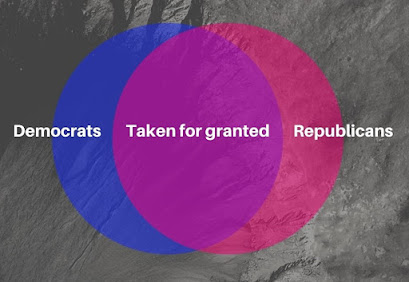One day when I was studying with Schoenberg,
he pointed out the eraser on his pencil and said,
"This end is more important than the other."
— John Cage
It's one thing to praise brevity, another to achieve it. Brevity begins and ends with "chunks."The basic chunk is the paragraph.
Think of the paragraph as a form of punctuation. Just as sentences would be hard to read without commas, colons, and periods, writing would be hard to read without paragraphs.
As a rule, short paragraphs (like this one) are effective.
The day was warm and still, the sky blue above a rising haze. Temperatures by afternoon were in the nineties, odd for London. People thronged Hyde Park and lounged on chairs set out beside the Serpentine. Shoppers jammed the stores of Oxford Street and Piccadilly. The giant barrage balloons overhead cast lumbering shadows on the streets below. After the August air raid when bombs first fell on London proper, the city had retreated back into a dream of invulnerability, punctuated now and then by false alerts whose once-terrifying novelty was muted by the failure of bombers to appear. The late-summer heat imparted an air of languid complacency. In the city’s West End, theaters hosted twenty-four productions, among them the play Rebecca, adapted for the stage by Daphne du Maurier from her novel of the same name. Alfred Hitchcock’s movie version, starring Laurence Olivier and Joan Fontaine, was also playing in London, as were the films The Thin Man and the long-running Gaslight.
However, while writing short paragraphs can be a virtue, paragraphs need not be short to seem brief. They simply have to follow a proven, four-part formula:
1. First, get your thoughts down, even if they take the form a single paragraph.
2. Next, "chunk" your separate thoughts into separate paragraphs.
3. Then, polish your paragraphs:
- Make sure your topic sentence—establishing the main point of the paragraph—is up front.
- Make sure the topic sentence transitions from the prior paragraph. That means it begins with something familiar to your reader, namely, the idea last expressed at the end of the previous paragraph.
- Shape the entirety of your paragraph so it progresses cohesively and coherently. Your sentences should flow one from another (that makes them cohesive) and at the same time link to a single topic—the one captured in your topic sentence (that makes them coherent). Whenever your sentences don't link readily to the main topic, introduce bullets or numbers, or simply begin a new paragraph. And don't bother writing a "summation" or "conclusion" at the end of your paragraph. Just leap to the next one.
4. Lastly, apply the business end of your pencil and revise. As you're doing so, be sure to express all your ideas with precision and to cut your words by a third, at least.
Here's an example of a paltry paragraph—lacking a topic sentence, lacking cohesiveness, lacking coherence, lacking precision. It's short, but godawful:
London's weather had been unusual for September, so Londoners took advantage of it to linger in the parks and visit the popular department stores. Even though an occasional air-raid siren would sound, the barrage balloons that flew overhead provided them a sense of security. They also attended plays and went to "picture shows," seeing films like Rebecca, The Thin Man and Gaslight. Considering England was at war, Londoners on the whole were quite complacent.
Here's the same content in the hands of Erik Larson, a writer who knows the business end of a pencil (the passage is from his new best-seller The Splendid and the Vile):
The day was warm and still, the sky blue above a rising haze. Temperatures by afternoon were in the nineties, odd for London. People thronged Hyde Park and lounged on chairs set out beside the Serpentine. Shoppers jammed the stores of Oxford Street and Piccadilly. The giant barrage balloons overhead cast lumbering shadows on the streets below. After the August air raid when bombs first fell on London proper, the city had retreated back into a dream of invulnerability, punctuated now and then by false alerts whose once-terrifying novelty was muted by the failure of bombers to appear. The late-summer heat imparted an air of languid complacency. In the city’s West End, theaters hosted twenty-four productions, among them the play Rebecca, adapted for the stage by Daphne du Maurier from her novel of the same name. Alfred Hitchcock’s movie version, starring Laurence Olivier and Joan Fontaine, was also playing in London, as were the films The Thin Man and the long-running Gaslight.







